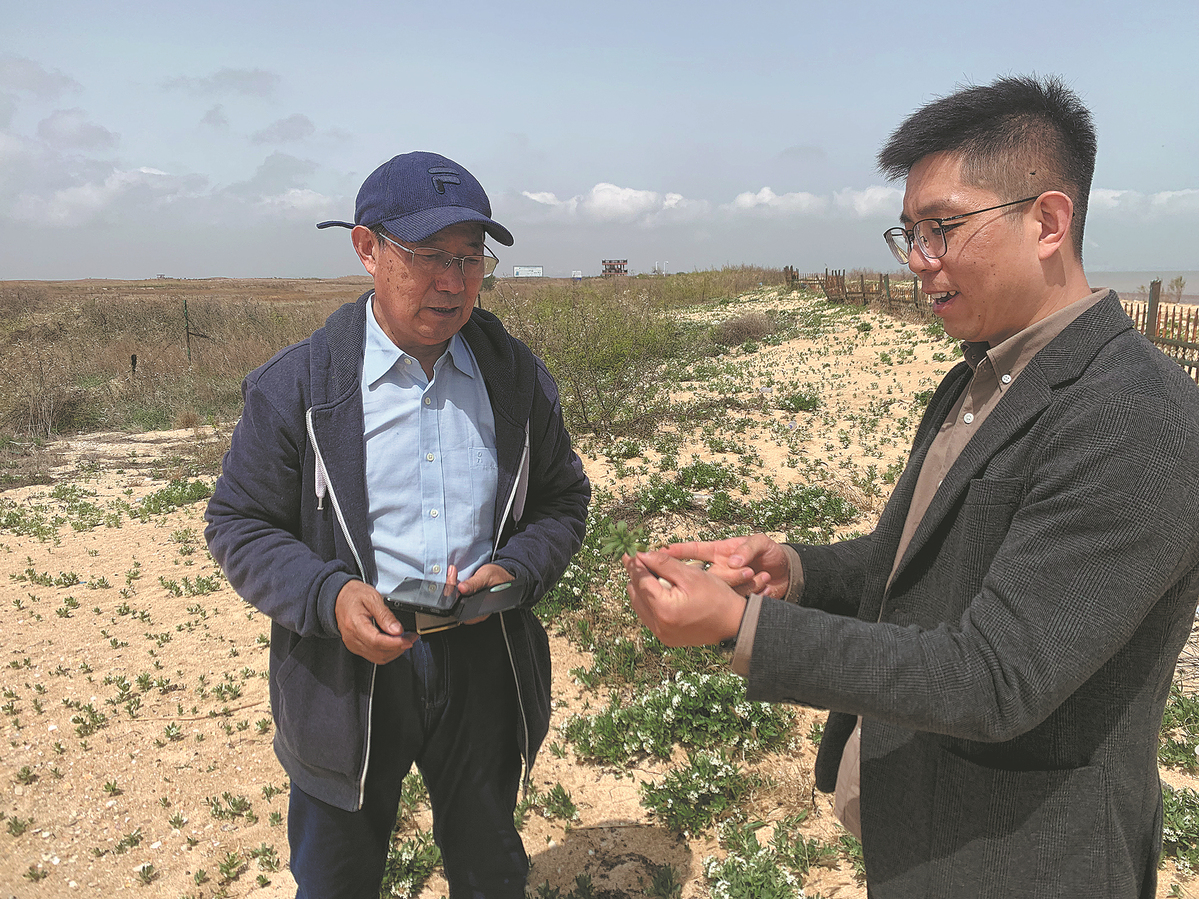Publication promotes professor's passion for plants


Wang Renqing, a professor from Shandong University in Jinan, Shandong province, has spent over a half century recording plants and their environments in an effort to protect nature.
The 69-year-old professor and his team recently published the Vegegraphy of Shandong, part of a book series on China's vegetation in its coastal areas.
This 1.3-million-word book — written by Wang and his team from data collected over the course of more than 70 years — offers deep insights into the vegetation in Shandong.
"The book not only details the characteristics and types of vegetation in Shandong, but also analyzes the causes of changes seen in vegetation and offers practical suggestions for nature reserve construction," Wang said.
As a top researcher in ecological studies, Wang and his team have also contributed to national-level research projects. Books on vegetation that he co-authored have won him two second-place prizes from the National Natural Science Awards.
Since the 1950s, three generations of ecology scholars at Shandong University — from Wang's mentor Zhou Guangyu to Wang himself, and then to his students — have completed more than 10 series comprising 36 books with solid research and profound knowledge.
"Plants are the 'spokespersons' of ecology," said Wang when asked about the reasons he dedicated his life to plant research.
"Understanding vegetation helps us interpret the broader ecological health of a region," he added.
Wang's fascination with ecology began in 1975 when he decided to study botany at Shandong University, specializing in Chinese herbal medicine. After obtaining his bachelor's degree, he chose to pursue a master's in ecology at the university in 1979, driven by a blend of personal interest and the country's efforts to protect the environment. He became one of the first batch of postgraduates of ecology in China.
His academic journey took him across China, from the chilly coniferous forests of the Greater Hinggan Mountains in the Inner Mongolia autonomous region to the tropical rainforests of Hainan province. He also explored the meadow grasslands of Hulunbuir in Inner Mongolia and the arid expanses of the Taklimakan Desert in the Xinjiang Uygur autonomous region.
"Each step deepened my understanding and appreciation of our country's diverse ecosystems," Wang said.
He and his team have conducted over 20 national and provincial-level nature reserve surveys. Their work encompasses major natural vegetation types in China, providing critical information for ecological management and conservation.
Among his research projects was the study of the Yellow River estuary area in Wudi county and Kenli district, two national-level natural protected areas in Shandong. For nearly three decades, Wang documented the area's vegetation, tracing the changes brought by the vegetation systems to the estuary area.
His team published three works on the vegetation and biodiversity of the Yellow River Delta wetland.
"Ecological research demands constant outdoor exploration," Wang said. "Fieldwork often presents dangers, from snakes and insects to challenging terrain. But these challenges are minor compared to the rewards of solving ecological puzzles and discovering the mysteries of nature."
Wang's commitment to ecology extends beyond China's borders. He has led his team on international scientific expeditions to countries including South Korea, Japan, Sweden and Canada, which have added to their collective knowledge.
In recognition of his contributions, Wang received an outstanding contribution award from the Botanical Society of China last year.
- Surging flu cases drive up demand for drug
- Nanchang funds 19 free funeral venues after tragedy
- Massive ice sculpture replicates CNS?Liaoning aircraft carrier
- China to enhance to improve carbon footprint
- Experts advocate vaccinations to combat flu cases
- Singer Lu Han apologizes for inappropriate behavior





































